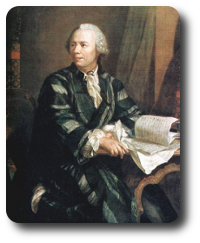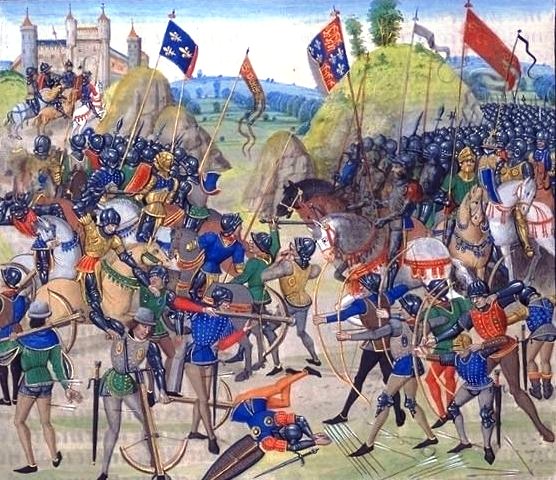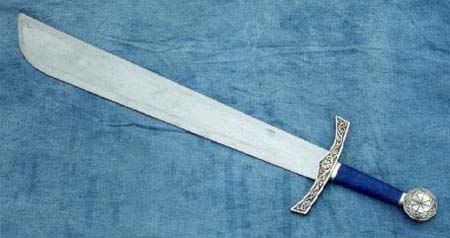Synchronising two directory trees - tree-sync 2.4
tree-sync.pl has had a little update thanks to a contribution from Dave Stafford.
- Added option 'diff' to view only changes
-
- Added option 'ignore' to exclude certain extensions
-
- Added option 'brief' to remove src/dest directories in report view to make cleaner output
In the 2.4 release I've also added the 'force' option to control read-only file handling.
tree-sync.pl is a bit of a geeky tool, suitable for cases where you want detailed control over a file-based copy/mirror/backup process from the command-line. There are many flashier solutions available these days, but if tree-sync scratches your itch - go for it!
tree-sync.pl continues to be available on CPAN, but from the 2.4 release I have moved the source to github. If you have changes to suggest or bugs to fix, please go ahead and join this project.
read more and comment..
Rolling Project Euler on Ruby
I first heard about Project Euler last week on the stackoverflow podcast. Michael Pryor (fogcreek co-founder) makes a quick side reference in discussion with Joel Spolsky, Jeff
Atwood and the rest of the SO team.
 Well I checked it
out last week, got hooked and spent most of the weekend earning my "level 1" badge;-)
Well I checked it
out last week, got hooked and spent most of the weekend earning my "level 1" badge;-)
Aside from dusting off some long-forgotten and arcane knowledge from my youth, I found it a fantastic opportunity to
stretch my fundamental ruby chops. In fact, I'd recommend a few questions at Project Euler as a right-of-passage
whenever you are learning a new programming language.
I've only been using ruby for a year or so, and in that time thought I had picked up a fair bit. But I was still able
to amaze myself at just how many of the problems were knocked over in just 1 or 2 lines with a bit of duck punching and liberal use of blocks with Enumerables.
 I'm late to the Project Euler craze, so you will already find many people posting hints for specific
questions if you just google. I thought I'd share some of the "common code" I've been building up as I go through the
questions.
I'm late to the Project Euler craze, so you will already find many people posting hints for specific
questions if you just google. I thought I'd share some of the "common code" I've been building up as I go through the
questions.
I put a recent copy of the source up on github for anyone who is interested (MyMath.rb), but what follows a sampling of
some of the more interesting pieces.
First thing you will note is that I have written all these "common" routines as extensions to some of the fundamental
classes in the ruby library: Integer, Array, String.
It doesn't have to be this way, and for less trivial activities you might be right to be concerned about messing with
the behaviour of the standard classes. Maybe I'm still enjoying my ruby honeymoon period, but I do get a thrill out of
being able to write things like
1551.palindrome?
=> true
Integer Extensions
It's just so easy to code up simple calculation and introspection routines..
class Integer
# @see project euler #15,20,34
def factorial
(2..self).inject(1) { |prod, n| prod * n }
end
# sum of digits in the number, expressed as a decimal
# @see project euler #16, 20
def sum_digits
self.to_s.split('').inject(0) { |memo, c| memo + c.to_i }
end
# num of digits in the number, expressed as a decimal
# @see project euler #25
def num_digits
self.to_s.length
end
# tests if all the base10 digits in the number are odd
# @see project euler #35
def all_digits_odd?
self.to_s.split('').inject(0) { |memo, s| memo + ( s.to_i%2==0 ? 1 : 0 ) } == 0
end
# generates triangle number for this integer
# https://en.wikipedia.org/wiki/Triangle_number
# @see project euler #42
def triangle
self * ( self + 1 ) / 2
end
end
Prime numbers feature heavily on Project Euler, and I think calculating a prime series was my first lesson on why you can't brute-force everything;-) Enter the Sieve of Eratosthenes and related goodness..
class Integer
# https://en.wikipedia.org/wiki/Prime_factor
# @see project euler #12
def prime_factors
primes = Array.new
d = 2
n = self
while n > 1
if n%d==0
primes << d
n/=d
else
d+=1
end
end
primes
end
# https://en.wikipedia.org/wiki/Divisor_function
# @see project euler #12
def divisor_count
primes = self.prime_factors
primes.uniq.inject(1) { |memo, p| memo * ( ( primes.find_all {|i| i == p} ).length + 1) }
end
#
# @see project euler #12, 21, 23
def divisors
d = Array.new
(1..self-1).each { |n| d << n if self % n == 0 }
d
end
# @see project euler #
def prime?
divisors.length == 1 # this is a brute force check
end
# prime series up to this limit, using Sieve of Eratosthenes method
# https://en.wikipedia.org/wiki/Sieve_of_Eratosthenes
# @see project euler #7, 10, 35
def prime_series
t = self
limit = Math.sqrt(t)
a = (2..t).to_a
n = 2
while (n < limit) do
x = n*2
begin
a[x-2]=2
x+=n
end until (x > t )
begin
n+=1
end until ( a[n-2] != 2 )
end
a.uniq!
end
# @see project euler #23
def perfect?
self == divisors.sum
end
# @see project euler #23
def deficient?
self > divisors.sum
end
# @see project euler #23
def abundant?
self < divisors.sum
end
end
Next we visit the Collatz conjecture and an interesting routine to make numbers "speak english"..
class Integer
# https://en.wikipedia.org/wiki/Collatz_conjecture
# @see project euler #14
def collatz_series
a = Array.new
a << n = self
while n > 1
if n % 2 == 0
n /= 2
else
n = 3*n + 1
end
a << n
end
a
end
# express integer as an english phrase
# @see project euler #17
def speak
case
when self <20
["zero", "one", "two", "three", "four", "five", "six", "seven", "eight", "nine", "ten",
"eleven", "twelve", "thirteen", "fourteen", "fifteen", "sixteen", "seventeen", "eighteen", "nineteen" ][self]
when self > 19 && self < 100
a = ["twenty", "thirty", "forty", "fifty", "sixty", "seventy", "eighty", "ninety"][self / 10 - 2]
r = self % 10
if r == 0
a
else
a + "-" + r.speak
end
when self > 99 && self < 1000
a = (self / 100).speak + " hundred"
r = self % 100
if r == 0
a
else
a + " and " + r.speak
end
when self > 999 && self < 10000
a = (self / 1000).speak + " thousand"
r = self % 1000
if r == 0
a
else
a + ( r <100 ? " and " : " " ) + r.speak
end
else
self
end
end
end
Calculating integer partitions is one of my favourites ... a nice, super-fast recursive algorithm. For problems like "how many ways to make $2 in change?"
class Integer
# calculates integer partitions for given number using array of elements
# https://en.wikipedia.org/wiki/Integer_partition
# @see project euler #31
def integer_partitions(pArray, p=0)
if p==pArray.length-1
1
else
self >= 0 ? (self - pArray[p]).integer_partitions(pArray ,p) + self.integer_partitions(pArray,p+1) : 0
end
end
end
Finally, rotations and palindromes (base 2 or 10): methods that rely on some underlying String routines that come later...
class Integer
# returns an array of all the base10 digit rotations of the number
# @see project euler #35
def rotations
self.to_s.rotations.collect { |s| s.to_i }
end
# @see project euler #4, 36, 91
def palindrome?(base = 10)
case base
when 2
sprintf("%0b",self).palindrome?
else
self.to_s.palindrome?
end
end
end
Array Manipulations
Array handling is particularly important. Start with some simple helpers, then move onto greatest common factor and a couple of least-common multiple implementations. My favourite here - lexicographic permutations.
class Array
# sum elements in the array
def sum
self.inject(0) { |sum, n| sum + n }
end
# sum of squares for elements in the array
# @see project euler #6
def sum_of_squares
self.inject(0) { |sos, n| sos + n**2 }
end
# @see project euler #17
def square_of_sum
( self.inject(0) { |sum, n| sum + n } ) ** 2
end
# index of the smallest item in the array
def index_of_smallest
value, index = self.first, 0
self.each_with_index {| obj, i | value, index = obj, i if obj<value }
index
end
# removes numbers from the array that are factors of other elements in the array
# @see project euler #5
def remove_factors
a=Array.new
self.each do | x |
a << x if 0 == ( self.inject(0) { | memo, y | memo + (x!=y && y%x==0 ? 1 : 0) } )
end
a
end
# http://utilitymill.com/edit/GCF_and_LCM_Calculator
# @see project euler #5
def GCF
t_val = self[0]
for cnt in 0...self.length-1
num1 = t_val
num2 = self[cnt+1]
num1,num2=num2,num1 if num1 < num2
while num1 - num2 > 0
num3 = num1 - num2
num1 = [num2,num3].max
num2 = [num2,num3].min
end
t_val = num1
end
t_val
end
# http://utilitymill.com/edit/GCF_and_LCM_Calculator
# @see project euler #5
def LCM
a=self.remove_factors
t_val = a[0]
for cnt in 0...a.length-1
num1 = t_val
num2 = a[cnt+1]
tmp = [num1,num2].GCF
t_val = tmp * num1/tmp * num2/tmp
end
t_val
end
# brute force method:
# http://www.cut-the-knot.org/Curriculum/Arithmetic/LCM.shtml
# @see project euler #5
def lcm2
a=self.remove_factors
c=a.dup
while c.uniq.length>1
index = c.index_of_smallest
c[index]+=a[index]
end
c.first
end
# returns the kth Lexicographical permutation of the elements in the array
# https://en.wikipedia.org/wiki/Permutation#Lexicographical_order_generation
# @see project euler #24
def lexicographic_permutation(k)
k -= 1
s = self.dup
n = s.length
n_less_1_factorial = (n - 1).factorial # compute (n - 1)!
(1..n-1).each do |j|
tempj = (k / n_less_1_factorial) % (n + 1 - j)
s[j-1..j+tempj-1]=s[j+tempj-1,1]+s[j-1..j+tempj-2] unless tempj==0
n_less_1_factorial = n_less_1_factorial / (n- j)
end
s
end
# returns ordered array of all the lexicographic permutations of the elements in the array
# https://en.wikipedia.org/wiki/Permutation#Lexicographical_order_generation
# @see project euler #24
def lexicographic_permutations
a=Array.new
(1..self.length.factorial).each { |i| a << self.lexicographic_permutation(i) }
a
end
end
String Helpers
Last but not least, some String methods that just make things so much easier...
class String
# sum of digits in the number
# @see project euler #16, 20
def sum_digits
self.split('').inject(0) { |memo, c| memo + c.to_i }
end
# product of digits in the number
# @see project euler #8
def product_digits
self.split('').inject(1) { |memo, c| memo * c.to_i }
end
#
# @see project euler #4, 36, 91
def palindrome?
self==self.reverse
end
# returns an array of all the character rotations of the string
# @see project euler #35
def rotations
s = self
rots = Array[s]
(1..s.length-1).each do |i|
s=s[1..s.length-1]+s[0,1]
rots << s
end
rots
end
end
With all the above in place - and with the aid of a few brain cells - some deceptively complicated questions (like "How many different ways can £2 be made using any number of coins?") are essentially one-liners:
require 'benchmark'
require 'MyMath'
Benchmark.bm do |r|
r.report {
answer = 200.integer_partitions([200,100,50,20,10,5,2,1])
}
end
Love it;-)
read more and comment..
Thomas of Hookton and 1215, The Year of the Magna Carta
Bernard Cornwell is a master and commander when it comes to bringing alive European history from the last
millennia. Where Patrick O'Brian has the sea,
Cornwell has the land.
I've read most of the Richard Sharpe novels, but I first encountered the grail quest series as audio books
from audible.
I must say that in combination with narration by Seán Barrett, I was absolutely hooked from the out. Together, they bring 14th century Europe to life like I
have never heard before. Cornwell with his words that pump life into long dead stories, and Barret with his
voice that just seems to call down through the ages.
If only my 2nd form history lessons were like this. But how can history teachers brought up in the 1950's,
using text books written by dainty scholars hope to convey a true sense of the times?

It may look quaint in a tapestry, but battle with sword and bow is particularly brutal. But of course for the
men of the time it was just all part of life. As Cornwell tells the tale of Thomas of Hookton, the grim reality
of life leaps from the page with Barrett's voice.

Seriously, the best way to "read" the grail quest series is to listen on audible. There are three volumes:
- Harlequin: The Grail Quest, Book I
-
- Vagabond: The Grail Quest, Book II
-
- Heretic: The Grail Quest, Book III
A great companion read is 1215: The Year of Magna Carta. It is a fascinating - and less dramatic - study of England in the 13th century: the years of Prince John, the legend of Robin Hood and of course the Magna Carta.
It was only after reading this, and having been imbued in the era thanks to the Grail Quest audible recordings by Seán Barrett, that I finally got a true sense of the complex relationship between France and England after the Norman conquests of Britain.
And then there is the Magna Carta. Probably more significant as a legend and ideal than an actual statement of rights. In its time, it seems to have been seen by some as a scandalous concession to the masses. Even Pope Innocent III condemned the charter as
..not only shameful and demeaning but also illegal and unjust, thereby lessening unduly and impairing his [the king's] royal rights and dignity

read more and comment..
Best Oracle OpenWorld 2008 quote so far..
WSJ blogger Ben
Worthen on the HP Oracle Exadata
Storage Server:
Oracle now has a device that is kind of like an iPod except that it is a lot bigger and a lot more expensive and not as cool.

"... priced at US$4,000 per terabyte of storage, plus the database license costs" Oh my.
read more and comment..